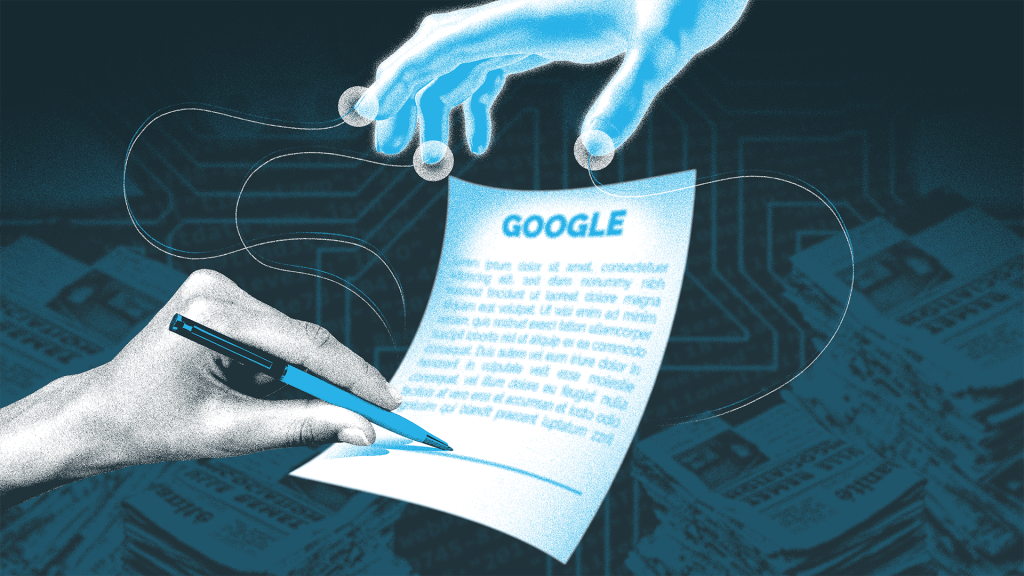
In 2022, Luiz, a publisher from Brazil, was elated to learn that his local newspaper had secured a contract with Google, one of the world’s most influential companies. Like many small news outlets in Brazil, Luiz’s publication was struggling financially, and Google’s offer seemed like a lifeline.
“I kept thinking, why they were offering me this? I said, is this all there is to it?” Luiz remarked, using a Brazilian saying: “Too generous a gift makes the saint suspicious.” Despite his concerns, Luiz signed the contract without fully understanding its implications due to a language barrier. The deal now accounts for 40% of his outlet’s revenue, deposited monthly like clockwork.
Google’s Global Influence Through News Showcase
Luiz is one of over 450 publishers across Latin America, and more than 2,000 worldwide, who have entered agreements with Google’s News Showcase licensing program over the past five years. Through this initiative, Google has pledged to invest a billion US dollars globally in news. Critics argue that this financial support fosters dependency, compels outlets to relinquish copyright claims, and potentially shields Google from future legal challenges regarding the use of journalism in its AI models.
The investigation, titled “Big Tech’s Invisible Hand,” led by Agência Pública and Centro Latinoamericano de Investigación Periodística (CLIP), in collaboration with 15 organizations, sheds light on these complexities.
The Strategic Shift in Google’s Approach
In 2019, the European Union passed a copyright directive that reshaped global technology and digital news regulations. This prompted Google to reassess its strategy, leading to the launch of Google News Showcase on October 1, 2020. According to Madhav Chinnappa, a former executive at Google News, the program was a pragmatic response to protect the company from regulatory pressures.
Unlike the Google News Initiative (GNI), which offered grants and training, Showcase involved licensing deals, granting Google rights to use content from partnered news outlets. This was seen as a way to preempt regulations like Australia’s News Media Bargaining Code and France’s digital copyright laws.
“I thought Google News Showcase would not solve the problems it was created to address — I thought it would make things worse,” Chinnappa said.
Showcase marked a departure from previous initiatives aimed at fostering news innovation, shifting towards mitigating regulatory risks and maintaining financial viability.
Financial Dependency and Secrecy
Showcase contracts range from US$25,000 to US$250,000 annually, with larger deals going to major outlets. For smaller publishers, the program represents a significant portion of their revenue. However, the contracts also include stringent non-disclosure clauses, preventing public discussion of the terms.
Carla Egydio, a lobbyist for the Brazilian Digital Journalism Association, noted that the secrecy clauses inhibit legislative support, as organizations fear losing essential revenue. Nelson Yap, chairman of the Public Interest Publishers Alliance, echoed this sentiment, stating that these agreements prevent collaboration among publishers.
Global Repercussions and Legal Challenges
Canada’s introduction of the Online News Act in 2022 aimed to bring transparency to the deal-making process between platforms and media outlets. However, upon the act’s passage in 2023, Google terminated its Showcase contracts in Canada, affecting major publishers.
In Germany, concerns over Showcase’s influence on search algorithms led to an investigation by the federal competition regulator. Although Google made adjustments, similar clauses remain in contracts elsewhere, allowing Google to terminate deals if new laws mandate payments or if publishers initiate legal action.
Oliver Schmidt from Corint Media highlighted the damaging nature of these clauses, emphasizing Google’s market dominance and the dependency of publishers on its platform for traffic.
AI Implications and Future Outlook
As AI development accelerates, news content becomes increasingly valuable for training models. Despite Google’s claims of minimal advertising revenue from news queries, AI’s reliance on factual content is undeniable. Recent studies show that AI summaries can significantly reduce traffic to news sites, raising concerns about the impact on the industry.
“There’s absolutely no denying that news content is valuable to AI companies,” said Klaudia Jaźwińska, a researcher at Columbia University.
Google’s Showcase contracts include intellectual property clauses that could potentially allow the use of news content for AI training, though Google denies using them as a shield. Julie Posetti from the International Center for Journalists warns of a “platform capture 2.0,” where tech companies’ influence over journalism could lead to self-censorship and diminished accountability.
As Google continues to renew and negotiate new Showcase deals, its role in the news industry remains pivotal. The implications of these contracts on journalism’s future, particularly in the context of AI, warrant close scrutiny.







